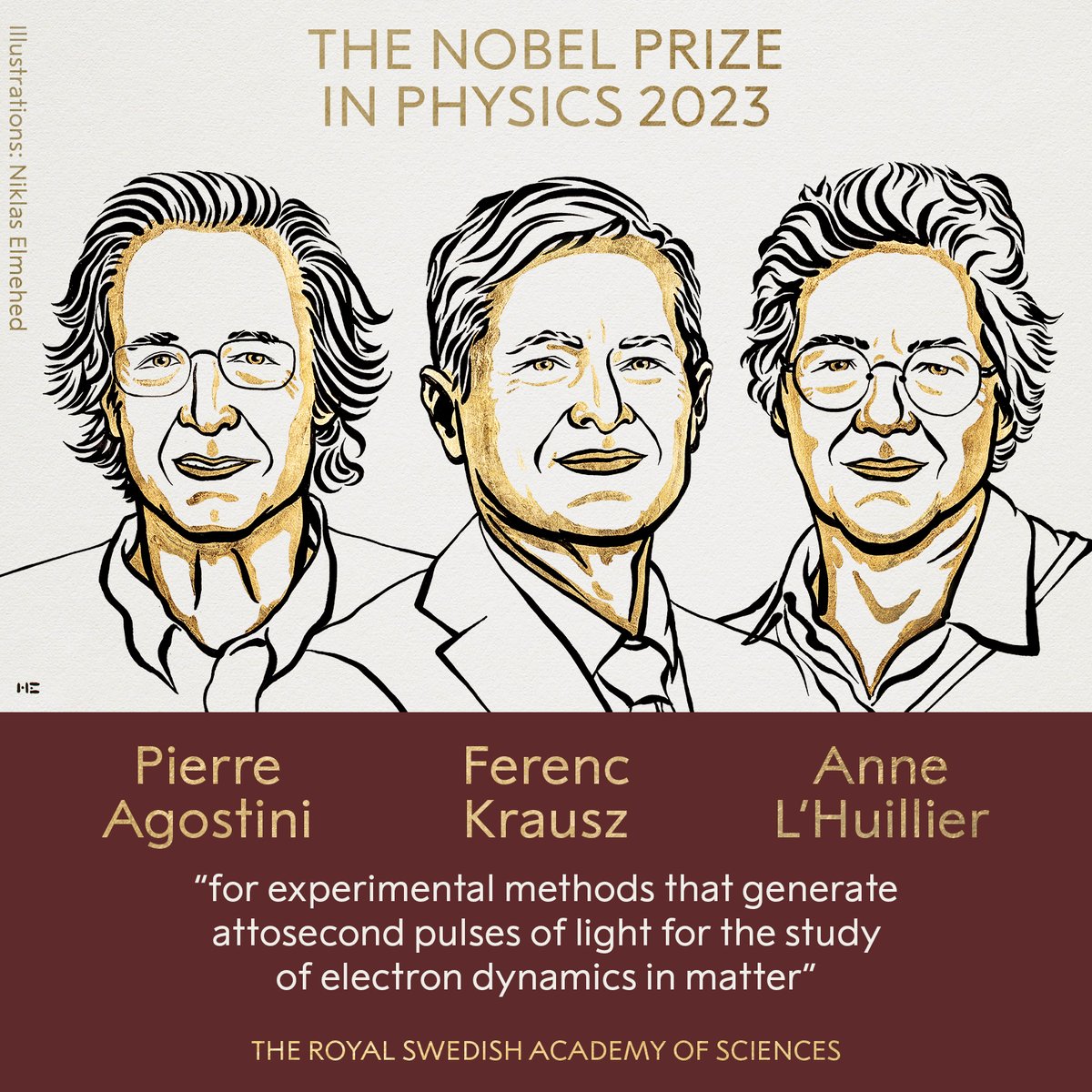Pierre Agostini, Ferenc Krausz and Anne L`Huillier created ultra-short light pulses with applications in materials science.

These three scientists have won the Nobel Prize in Physics for showing how to create ultra-short pulses of light that can be used to measure the movements of electrons.
Pierre Agostini of Ohio State University, Ferenc Krausz of the Max Planck Institute of Quantum Optics in Germany and Anne L`Huillier of Lund University in Sweden share the SKr11mn ($1mn) prize for creating laser pulses measured in attoseconds — billionths of a billionth of a second, the shortest timescale ever achieved by scientists.
Their works can be potentially applicate in materials science fields such as electronics, biotechnology and nanotechnology.
To put duration into context, there are as many attoseconds in a second as there are seconds since the creation of the universe.
Anne L’Hullier, the fifth woman among 225 Nobel laureates in physics, said the practical application of attosecond lasers would become an imaging tool in the semiconductor industry.
L’huillier achieved her first breakthrough in a series of discoveries leading to attosecond physics at the University of Paris-Saclay in France in 1987, and continued her research after moving to Sweden in the 1990s.
L’Huillier`s French compatriot Agostini also worked at Paris-Saclay before moving to the US in 2002. Krausz, originally from Hungary, carried out his laser physics research initially at the University of Vienna and then at the Max Planck Institute.
Krausz’s lab is “taking the first steps towards biological applications”, said the Royal Swedish Academy of Sciences. Combining attosecond physics with broadband optics, the researchers are developing new ways to detect changes in the molecular composition of biological fluids, including detection of diseases from blood samples.





